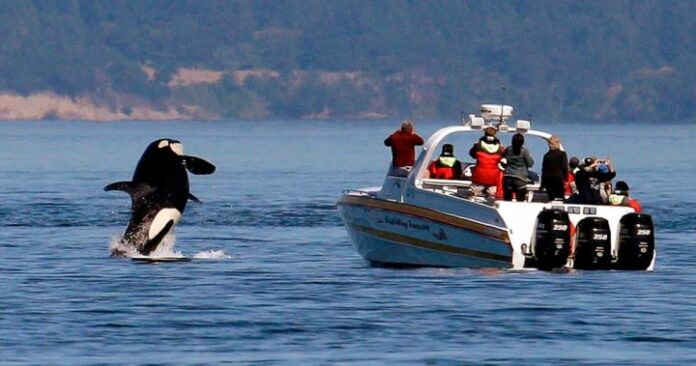“Are viral videos jeopardizing the well-being of marine mammals? A captivating close-up encounter with a whale may seem like a dream come true, but conservationists are raising concerns about the consequences of sharing such videos. As summer approaches and tourists flock to Vancouver Island, a coalition of organizations is taking action to protect marine wildlife from potential harm.
The Dangers of Viral Videos
In a world where social media is king, the allure of likes and shares can often overshadow the well-being of animals. Stephen Gabrysb from the North Island Marine Mammal Stewardship Association warns that sharing videos of close encounters with marine mammals can prompt others to seek similar experiences, putting the wildlife at risk. The coalition, comprised of 4VI, the Marine Education and Research Society, and the North Island Marine Mammal Stewardship Association, is particularly concerned about the spread of videos showcasing surprise interactions with whales and other marine life.
Setting the Record Straight
While marine ecotourism standards in British Columbia are among the strictest globally, the dissemination of misleading videos on social media can misinform the public about the laws governing interactions with marine mammals. Brian Cant, the vice-president of business impact and engagement at 4VI, stresses the importance of providing accurate information to visitors to ensure the safety of both humans and wildlife. The coalition aims to educate marine operators and tourists about safe viewing distances and responsible behavior around marine mammals.
Protecting Marine Wildlife
To combat the spread of potentially harmful videos, the organizations have created a video highlighting the regulations surrounding marine mammal viewing. By encouraging marine operators to share this educational content, the coalition hopes to reinforce safe and legal practices during the busy tourist season. Jackie Hildering of the Marine Education and Research Society emphasizes the need for operators and the media to promote respect for wildlife and compliance with existing laws to minimize disturbances.
Conclusion
In a time when social media can influence behavior and perceptions, it is essential to prioritize the well-being of marine wildlife over viral fame. Federal regulations mandate specific distances that individuals must maintain from marine mammals to ensure their safety. By raising awareness and enforcing these regulations, we can safeguard these majestic creatures for generations to come. The true value of a wildlife encounter lies in fostering a respectful and responsible relationship with the natural world, rather than seeking fleeting moments of online validation.”
Reference














